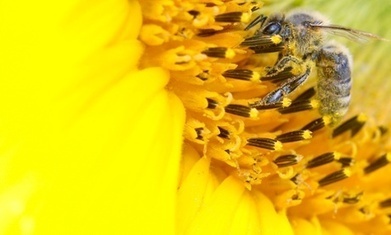See on Scoop.it – Green & Sustainable News
Daniel Lee Kleinman and Sainath Suryanarayanan: Recent controversies over honey bees remind us of their environmental and economic importance, but should also prompt us to reflect upon the structures of expertise we rely upon…
>Despite the conclusion of beekeepers across the globe, based on their field research, that neonicotinoid insecticides were likely contributing to increased bee mortality, some chemical company representatives, scientists and government regulators dismissed or disparaged their findings. Our view is that commercial beekeepers have real-time observational knowledge of the crisis facing honey bee pollinators and that we should take their research seriously (see our Social Studies of Science paper for more). Our point is not to say that commercial beekeepers always know best. Rather, it is to argue for more genuinely participatory research that brings beekeepers’ knowledge and scientists’ knowledge into a creative and egalitarian dialogue toward a fuller understanding of why honey bees are dying.
[…]
The US government has opposed taking neonicotinoid pesticides off the market in the absence of conclusive evidence of their adverse effects on honey bees. The UK has taken broadly the same position. This is a classic dilemma in science. But it is not simply a matter of data. The US and UK governments share a value-based preference for false negatives over false positives. A false negative amounts to incorrectly concluding that neonicotinoid pesticides are safe when they might not be. Advocates of the precautionary principle share a preference for the reverse. They have supported taking the neonicotinoid pesticides off the market in the face of suggestive evidence based on scientific laboratory and field studies, and beekeepers’ observations. Given what is at stake here, we are on the side of those who prefer to err on the side of caution. And as policymakers and citizens increasingly confront complex challenges fraught with tremendous risk, we may want to make a precautionary orientation our default position.
We all eat and so we should all be concerned about the alarming uptick of honey bee deaths, but the current crisis can also be an opportunity to consider how to do things differently.<
See on www.guardian.co.uk

Reblogged this on The Daily Advocate By Painspeaks.
LikeLike
Thanks!
LikeLike
Pingback: Honey bees under threat: a political pollinator crisis | Blog van Bee it solutions